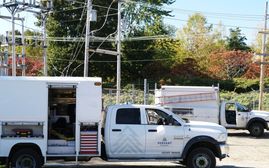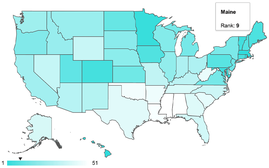House Republicans sustain LePage's veto of bipartisan marijuana legislation
 Photo / Tim Greenway
Maine lawmakers in a special legislative session on Monday failed to override Gov. Paul LePage's veto of a bill that would have established regulations for the legal marijuana market.
Photo / Tim Greenway
Maine lawmakers in a special legislative session on Monday failed to override Gov. Paul LePage's veto of a bill that would have established regulations for the legal marijuana market.
The Maine House of Representatives on Monday failed to override Gov. Paul LePage’s veto of bipartisan legislation that would have implemented the recreational marijuana referendum approved by voters last year.
While LD 1650, An Act To Amend the Marijuana Legalization Act, originally passed by strong margins, the bill failed to reach the two-thirds support needed to override LePage’s veto — due to the majority of House Republicans opposing the measure in the 74-62 vote (with 13 representatives being absent and one excused).
The vetoed legislation was the culmination nearly seven months of work by the Marijuana Legalization Implementation Committee. The bill creates the rules for licensing and regulating marijuana producers, processors, and retail establishments. It also sets the tax rates for adult-use marijuana and will delay marijuana consumption social clubs until the summer of 2019.
Under the citizens referendum initiative approved by voters last November, Mainers can already grow and possess recreational marijuana, but they weren't able to legally purchase it outside of the state's medical marijuana system due to lawmakers' delaying the commercial part of the law until early 2018.
GOP leaders issue statements
In statements posted on the House Republican’s website, Republican Leader Rep. Ken Fredette of Newport and Rep. Patrick Corey of Windham, a member of the Joint Standing Committee on Marijuana Legalization Implementation, said the vetoed bill means that more work needs to be done to improve its proposed regulations.
Corey stated: “I believe that it is important that we pass a bill that regulates and taxes adult-use marijuana. That said, LD 1650 is not ready to do that. Above all else, the excise tax scheme does not raise adequate revenue and there was no way of knowing that until the fiscal note was published last Friday afternoon. Maine’s people are watching. I’m positive that their expectation is that we pass a bill that generates more revenue than what it takes to run the program.”
Fredette added: “With today’s vote, the legislature clearly does not have enough votes to move this bill forward over a governor’s veto. While we recognize the committee did some good work, there is obviously more work to be done when we return in January.”
Democrats voice disappointment
In a news release issued by the House Democratic Office, Rep. Teresa Pierce, D-Falmouth, House chair of the Marijuana Legalization Implementation Committee, said she was “deeply disappointed” the bipartisan legislation “was successfully derailed by a small group of people.”
“It didn’t matter how thoughtful this legislation was, certain individuals were set on a predetermined outcome of slowing down this process because they didn’t like the outcome of the referendum,” she said in a written statement. “While we received strong bipartisan support, those who voted against this bill voted to ignore public safety concerns, abandon law enforcement officers who asked for more guidance and ease the path to underage marijuana access in Maine”
Sen. Mark Dion, D-Portland, a member of the Marijuana Legalization Implementation Committee and a former Cumberland County sheriff, added: “The governor’s veto is the latest in a long line of setbacks, but we remain closer than ever before to enacting reasonable drug policy reforms to end the system of black-market profits and needless incarceration. We will continue our work, knowing the people of Maine are on our side. It’s only a matter of time before the voters’ will is fulfilled.”
The House Democratic Office stated that the failure to pass LD 1650 ensures the original referendum approved last November “takes effect as written, preventing critical safety measures and blocking stronger local control for municipalities that were established by the new bill.”
Here's what the vetoed bill would have done
LD 1650 was drafted by a 17-member bipartisan committee established by the legislature and received a 15-2 vote in committee. The group held hours of public hearings, utilized expert testimony and engaged stakeholders affected by the existing law.
Key provisions included:
- Establishing a detailed regulatory framework for adult-use recreational marijuana.
- Included protections against use by minors by banning marketing practices that targeted underage Mainers, provided funding for youth prevention and public safety campaigns, and established stronger guidance for members of law enforcement.
- Established an opt-in for local municipalities to preserve community autonomy in entering the new industry.
The House Democratic Office stated the language of the original referendum initiative “includes less clarity and direction in relation to law enforcement and contains fewer safeguards around youth prevention. It also allows for the possibility of marijuana drive-up windows, internet sales and home deliveries, all of which were banned by LD 1650.
The Marijuana Legalization Implementation Committee will continue to meet to determine legislation moving forward.














Comments